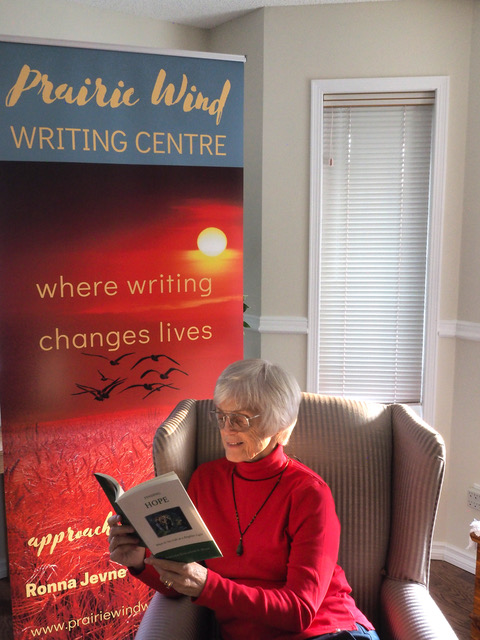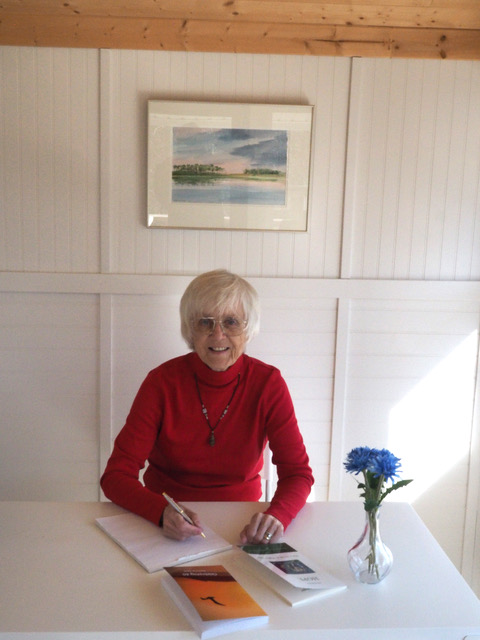Psychologist, professor and author Ronna Jevne on how to cultivate and find hope during the Covid crisis
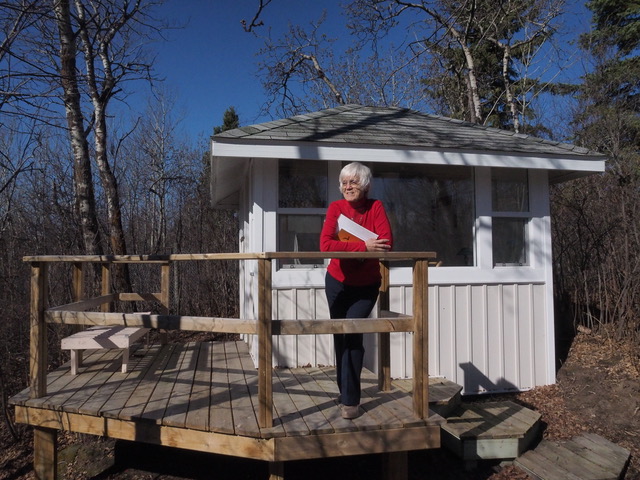
Hope is a fascinating phenomenon. A day with it guarantees nothing; a day without it is very difficult. It can’t be injected. It can’t be x-rayed and yet we know when our hope is down.
Ronna Jevne has been a psychologist, researcher, university professor and leading authority on hope. She is a founding member of the Canadian Association of Psychosocial Oncology and the Hope Foundation of Alberta, a research centre associate with the University of Alberta whose mission is to explore and apply the phenomena of hope. She is the author of several books, including the recently published Finding Hope: Ways of seeing life in a brighter light. Jevne, and her co-author, James Miller, invite new understandings about hope, how to foster hope in our own lives and offer strategies for finding and practicing hope.
1. Can you tell us a bit about yourself?
I laugh a lot, love deeply, and have a thirst for adventure. I believe life is not a problem; it is an experience to be lived. My pen and my camera are constant companions. I am passionate about photography, and I manage to stay fit while wishing it didn’t require exercise.
I loved every day of my life as a psychologist and professor. I have had the privilege of working in education, health care, corrections, and academia. Over the years, I have seen extraordinary courage in the midst of life’s most serious challenges.
I stepped back from the mainstream of professional life to be with my husband in the last chapter of his life.
I live now on eight acres of heaven, share my life with my husband, Hal Martin. Hal and I are lifelong friends who had amazing partners. In a brief window, we both lost our spouses. We now share our lives.
Life has given me new opportunities on all fronts. In this new chapter of my professional life, writing is central. My role in the Prairie Wind Writing Center, a partnership with my present husband Hal, is to take the lead in designing workshops/retreats, writing books, and promoting therapeutic writing with clients and professionals.
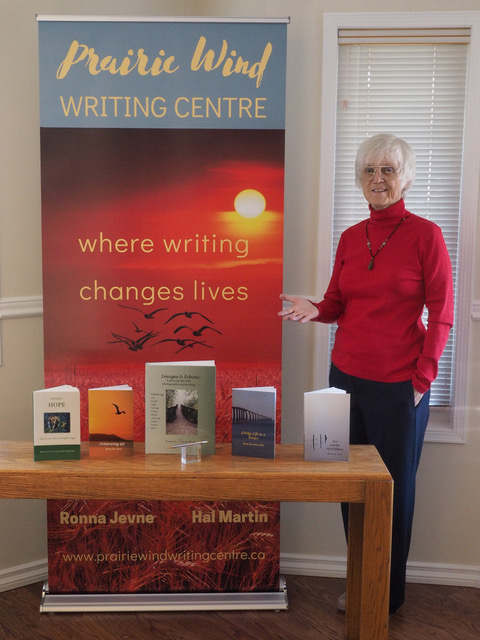
2. Can you summarize what your book is about in a few sentences?
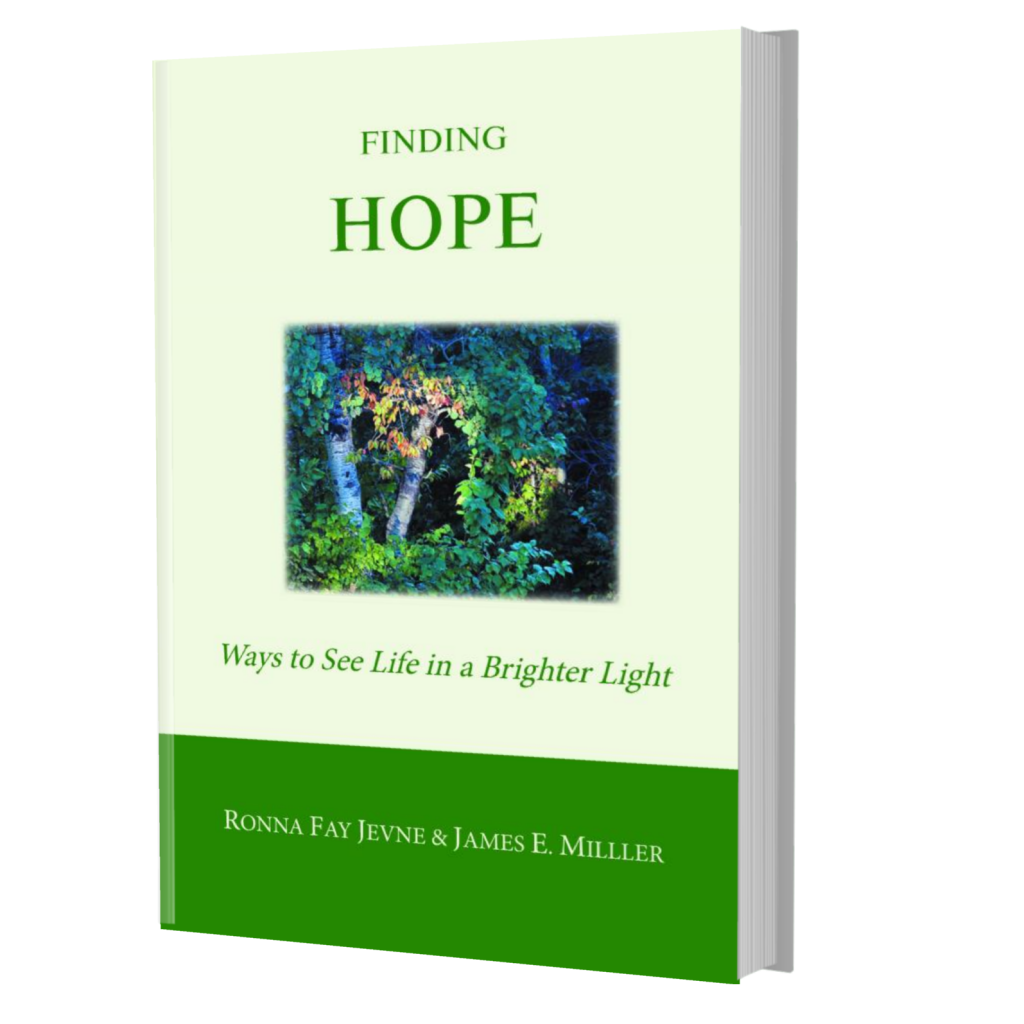
Finding Hope: Ways to see life in a brighter light is a shortcut to hope. After an introduction to the value and qualities of hope authors Jevne & Miller offer time tested strategies to enhancing your hope. Each strategy is a one-page explanation and illustration of a “how to”. Written in a personal style and accented with quotations and photographs, Finding Hope is not only about hope, it is an experience of hope.
3. You are a leading authority on hope through your work as a researcher, university professor and psychologist. What is it about hope that fascinates you?
Hope is a fascinating phenomenon. A day with it guarantees nothing; a day without it is very difficult. It can’t be injected. It can’t be x-rayed and yet we know when our hope is down. It is different than faith, coping, or resilience. People who have hope approach challenges differently than those who feel less hope. They achieve more, handle uncertainty with more confidence and have better health and well-being, Yet, hope was until the last couple of decades was virtually ignored by the scientific community.
4. What inspired you to write “Finding Hope?”
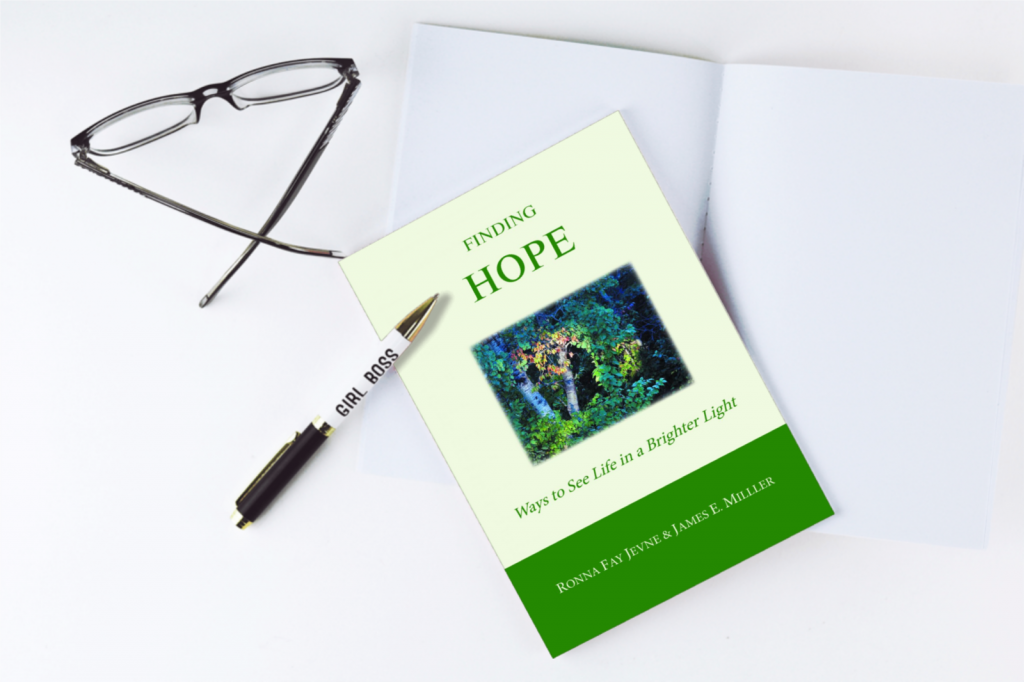
More than one factor contributed to my initial interest in hope.
- I personally had faced seriously unfavorable odds with regard to my health in my late twenties. Hope was a factor in survival.
- The value of hope was reinforced by my observations as the senior psychologist in a cancer hospital. Curious that some patients survived against the odds, I would ask, “How do you account for that?” The answer always included, “I never gave up hope.”
- Later, as a scholar, I wanted answers to four questions: what is this thing called hope, can it be measured, what does it look like in practice, and can it be learned? It became apparent there was an abundance of opinion and little that was evidence based. Research at the Hope Foundation of Alberta, addressed those question.
- Jim Miller and I collaborated to write Finding Hope a way of sharing with the general public understandings and strategies that were solidly grounded in our research.
The second edition was inspired by the response to the first edition. One person purchased over 300 copies herself over a decade. The second edition has minor revisions to the text, larger font for easier reading, and a new face life with animated photographs.
5. What is the message you share in your book?
The message is relatively simple. Hope is real. Hope is uniquely configured for each individual. Hope is crucial to our wellbeing and it can be enhanced with practice. Hope is an attitude and a skill. Cultivate hope and your life will be enriched.
6. How do you define hope and how does it work?
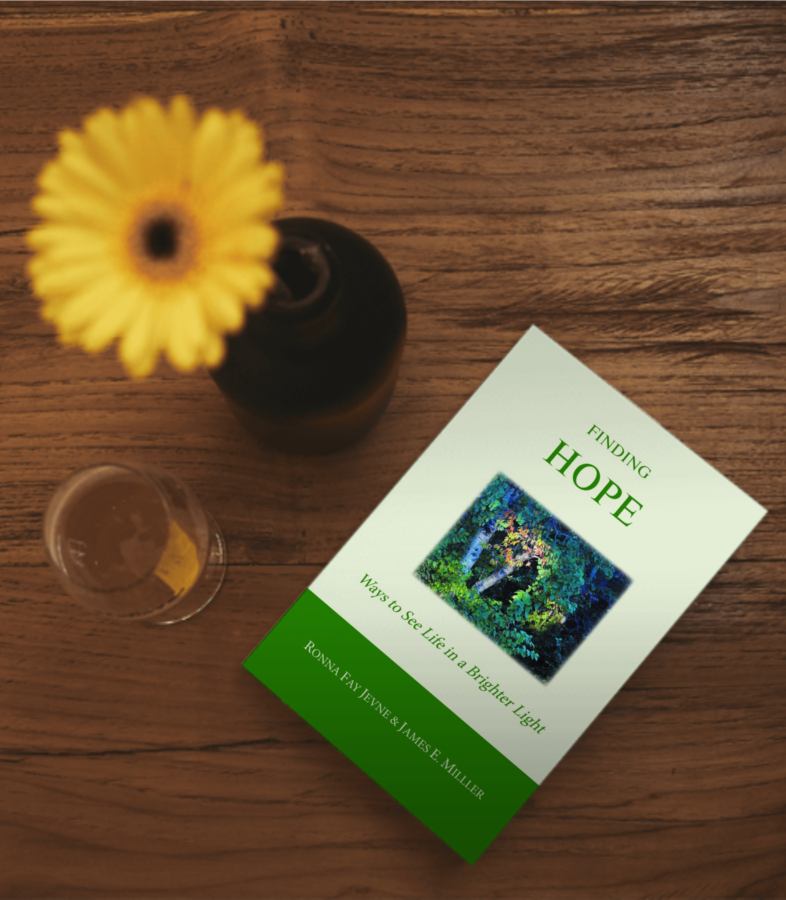
Defining hope is not something we do anymore. Each person’s hope is embedded in the life experiences that they have encountered, including the people who have influenced their lives. There have been many efforts to describe its qualities however. Hope is linked in meaning both at the levels of “soul” and “goal.” A key to understanding hope is that hope is a chosen “orientation” to life. If we are oriented to hope, we see things from a perspective or lens of hope. We approach challenge differently than someone who sees the world through the lens of fear.
7. Why is hope such a necessity in daily life, especially in times of crisis?
Hope has been described as the ability to “co-habit with uncertainty.” With uncertainty, comes anxiety. With anxiety, comes hasty, often inadequate coping and decision making. When we are able to envision a future in which we want to participate, we, not surprisingly, do better. We call the ability to stay focused and work on a constructive immediate or long-term future “hope work.” The more practiced we are at hope work, the better we navigate times of uncertainty.
8. Your message of finding hope is very relevant right now as the world faces the coronavirus outbreak. How can people find hope in their day-to-day lives during this global health crisis?
- We need to be reminded of several things. First, fear is almost always a memory of the past or a concern for the future. It is important to ask ourselves, “what would a hopeful person do today?” Hope doesn’t mean being in denial. It means taking action today from available options in order to contribute to the best possible future.
- Remember, in all likelihood you have weathered personal challenges prior to this. As well, our families, friends, communities, and nations have come through difficult times. Remember what was not possible today, may be possible tomorrow. What is not possible alone, may be possible if we act together.
- Notice hope that is right in front of you. Hope that is in your everyday life. Notice within yourself the need to feel a little more hopeful. Notice people and even speak with people you know to be hopeful. Avoid the doomsayers. We don’t need to solve huge problems to feel more hopeful. Big hopes. Small steps.
- Hope responds to practice. Practice hope each day using strategies you have observed in those you might call your hope mentors and strategies you find in the book Finding Hope (2 edition).
The message is relatively simple. Hope is real. Hope is uniquely configured for each individual. Hope is crucial to our wellbeing and it can be enhanced with practice. Hope is an attitude and a skill. Cultivate hope and your life will be enriched.
9. What does the research say about the power hope and its ability to change our perspective on a situation?
Research on hope has verified the power of hope and the mechanisms by which hope contributes to change. Hope is sometimes what we have to do before we can do what we have to do. Without hope, we tend to labor, to give away our power. Hope may not change the immediate situation, but hope changes our willingness to participate in the best available outcomes.
10. In your book, Finding Hope, you give 22 ideas on how to find, keep and build hope in one’s personal life. Can you share a few strategies people can practise to find and keep hope in their lives?
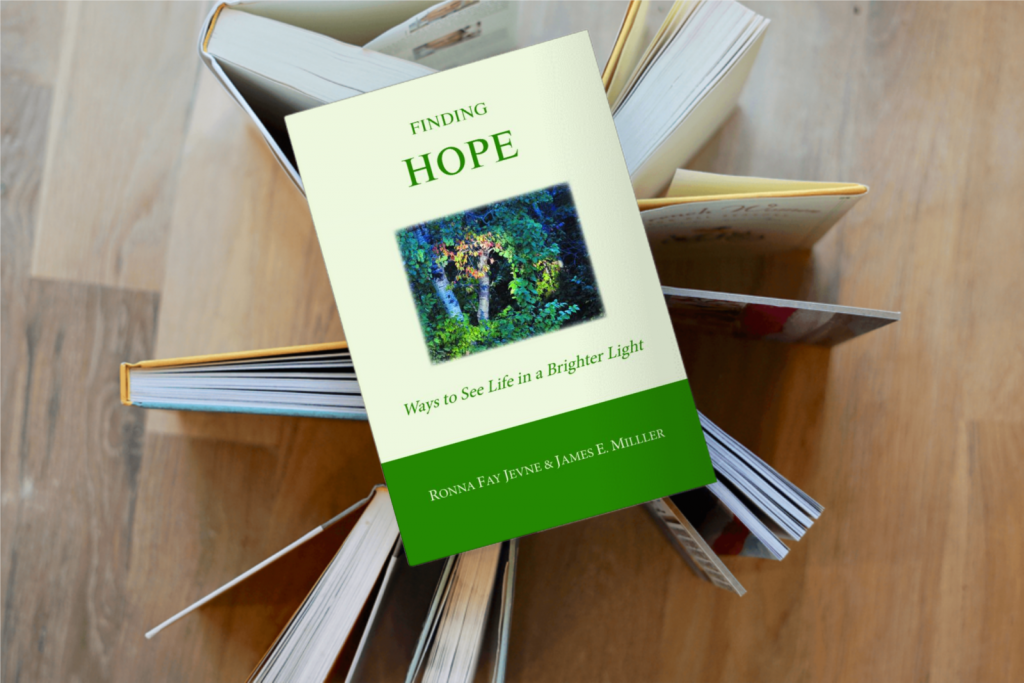
- Hope is contagious. Even with physical and social distancing it is possible to connect with people. Cultivate people who are hopeful, who use humour, who don’t catastrophize or blame someone for the pandemic. You can tell after speaking to someone if you feel more hopeful. Avoid exposure to too much media.
- Keep a hope reminder around. Whether that is a comfort stone with a special word on it, a photo of someone special, fresh flowers, hope reminders are a cue to see the world through a lens of hope. Some people use journals to explore and reinforce their hope.
- Expand your world beyond yourself. Make a positive difference in someone else’s life with a random act of kindness.
- Artistic endeavors often trigger hope. Music. Painting. Photography. Be in nature. Do something creative. There is research tying the creative domain of our lives to our hope. Experiment. Explore even in these times when things are very serious and problems are very real.
- Practice. Practice. Practice.
11. How are you personally creating and nurturing hope in your life right now?
I find reading inspiring things for some reason strengthen my hope. I love to put out peanuts for the blue jays and watch the squirrels steal some of them. I have an elderly friend (90) who is quarantined in her new assisted living accommodation. She has recently lost her sight and looks forward to my daily call. I am well aware also that it is very hard to be hopeful if you are exhausted so I am eating, sleeping and exercising regularly. Because I live in the country I can walk several miles and never be anywhere near anyone. By taking care of my physical and emotional needs, I am contributing to a greater likelihood that I would recover if infected.
12. How has the Covid crisis impacted your life and work as an author?
- My hope lens is often focussed on gratitude. I am reminded of how grateful I am to be a Canadian. In many countries the health care and economic systems would not and perhaps cannot be as supportive. I am grateful for how Canadians are pulling together through this. I am proud of those who continue to work on the front lines. That gives me hope. I am grateful that I am well, as is my family.
- Given that I am essentially retired, I continue to write and continue to support my network of friends and family, many of whom have greater challenges. Certainly I have been impacted with the change in the economy but I offset financial anxiety with gratitude and a belief in our countries future.
- The virus has made me ask the question, “How can I contribute? How can I bring greater hope and wellbeing to others, in practical or less visible ways? What is my part in us recovering from the virus and the consequences of the virus?”
- A more light hearted thing that I do is to ask myself each day, “What will I do to lighten my spirit? To goof off in some small way. Having shared the idea with others, I have been delighted and inspired by what others are doing to “goof off” just a little during this serous time.
13. What are you doing now to promote the book?
It is a challenge to do book promotion during this time. Bookstores are closed so book signings are out. Our scheduled workshops are cancelled. Conferences at which I was to present are postponed. In some cases, even mail is not getting through. People are not at work to receive e mail blasts. Social media is cluttered. So I hope. And I rehearse in my head creating lists of what might be possible as the pandemic passes. I prepare materials for targeted marketing when it is timely. I trust in the future. I trust in our willingness to take things one step at a time, to watch for a door that may open. We take the opportunities that present themselves to recommend FINDING HOPE.
14. Is there anything else you would like to add?
Almost nothing happens without hope. Hope is to our spirit what hope is to our lungs.
Hope is not something that happens, it is something you chose. If you are open to it, hope finds its way to you. Hope is something that you notice in its absence. If you are aware of not having the level of hope that you want, you can change even if your circumstances don’t change. Live “as if” your hope will happen. Then take the constructive steps to contribute to it make your hope happen.
Hope does not require we deny our feelings of fear. Hope allows us to co-exist with our feeling, to not be paralyzed by them.
15. Can you leave us with a few words about hope from your book?
Hope says “yes”. Yes, whatever has happened, there will be a way to succeed. Yes, whatever has been handed to you, you will deal with it. Yes, the unexpected can bring joy as well as sorrow. Hope says, “Yes, life can still be good.”
Hope does not say this easily or blithely or even conditionally. Hope is a matter of saying “yes” with no strings attached. Just “yes.” Living that “yes” means believing that if today is not the way you want it to be, tomorrow can be another story. Something new and different can happen. The difference may be in the situation, in others, or in yourself.
Learn more about Ronna on her website.
Purchase Finding Hope on Amazon, Indigo or Barnes and Noble
